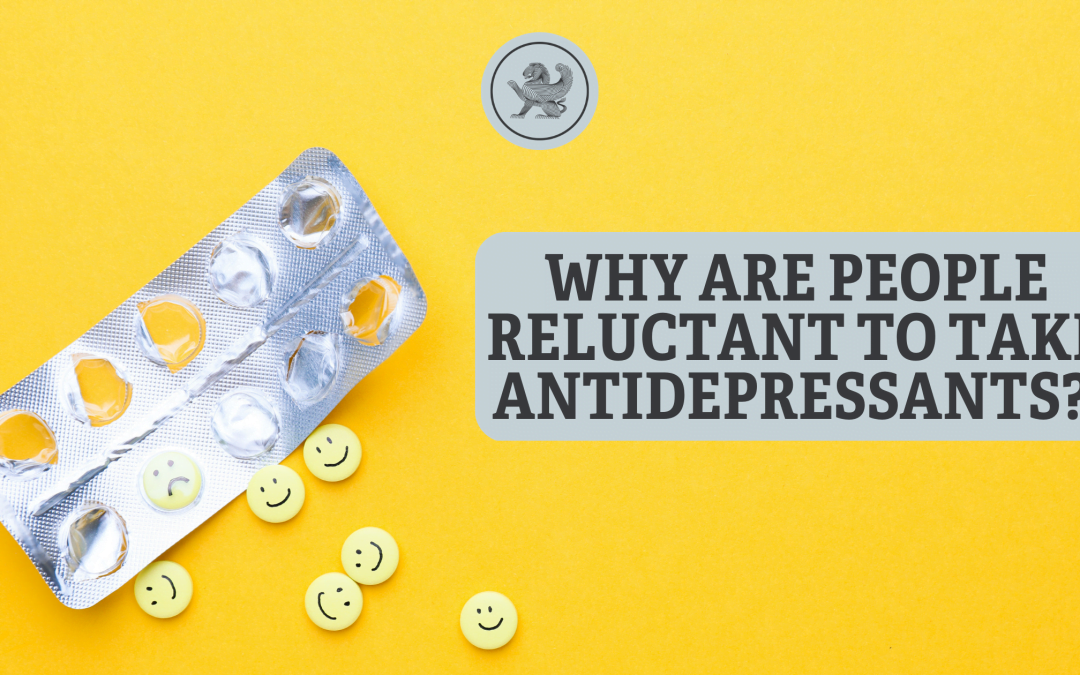CREDITS
By Dr Melane van Zyl
After so many years in private practice, I am still surprised by how often I have to convince a patient to take an antidepressant. After all, antidepressants can save lives!
Here is a list of why people are sceptical and even scared of antidepressants:
• Stigma: The stigma surrounding mental health issues can extend to the use of antidepressants. People may feel embarrassed or ashamed to admit that they need medication to manage their mental health, fearing judgment from others.
• Misconceptions about antidepressants: Some people may believe that taking antidepressants is a sign of weakness or that they should be able to manage their mental health without medication. Others may think that antidepressants are addictive or will alter their personality.
• Side effects: Antidepressants can cause various side effects, such as weight gain, sexual dysfunction, nausea, dizziness, or fatigue. The fear of experiencing these side effects may discourage some people from trying antidepressants.
• Concerns about efficacy: Some individuals may doubt the effectiveness of antidepressants, particularly if they have heard mixed reviews from friends, family, or online sources. They may worry that the medication will not work or that the benefits will not outweigh the potential side effects.
• Fear of dependence: People may worry that they will become dependent on antidepressants and will be unable to function without them. This concern can lead to reluctance in starting medication, as individuals may want to avoid relying on medication for their mental well-being.
• Preference for alternative treatments: Some people may prefer to explore alternative treatments, such as psychotherapy, exercise, or natural remedies, before considering medication. They may believe that these options are safer or more in line with their personal values and beliefs.
• Cost: The cost of antidepressants can be a barrier for some people, particularly those without health insurance or with limited coverage for prescription medications.
• Fear of withdrawal: Individuals may be concerned about the potential for withdrawal symptoms when discontinuing antidepressants, particularly if they have heard stories about the challenges of coming off the medication.
• Mistrust of the pharmaceutical industry: Some people may have a general mistrust of the pharmaceutical industry and may be skeptical of the motives behind developing and promoting antidepressant medications.
To address these concerns, it is essential to have open and honest conversations with your doctor about the potential benefits and risks of antidepressants. He/she can provide accurate information, address misconceptions, and help individuals make informed decisions about their mental health treatment.
Antidepressants can provide numerous benefits for individuals struggling with depression and other mental health conditions. Some benefits of antidepressants include:
• Improved mood: Antidepressants help balance brain chemicals called neurotransmitters, which can improve mood and overall emotional well-being.
• Reduced anxiety: Many antidepressants can also help alleviate symptoms of anxiety disorders, leading to a decreased sense of worry and fear.
• Better sleep: Antidepressants can help regulate sleep patterns, allowing individuals to fall asleep more easily and stay asleep longer.
• Increased energy: By alleviating depressive symptoms, antidepressants can help restore energy levels and motivation.
• Enhanced concentration: Antidepressants can improve focus and cognitive function, which can be negatively impacted by depression.
• Appetite regulation: Some antidepressants can help normalize appetite, leading to healthier eating habits and weight stabilization.
• Reduced physical symptoms: By addressing the emotional aspects of depression, antidepressants can also help alleviate physical symptoms such as headaches, muscle pain, and digestive issues.
• Prevention of relapse: Long-term use of antidepressants can help prevent the recurrence of depressive episodes.
• Treatment for other conditions: Antidepressants can also be beneficial in treating other mental health disorders, such as obsessive-compulsive disorder, post-traumatic stress disorder, and panic disorder.
• Improved quality of life: Overall, the advantages of antidepressants can lead to an improved quality of life, with enhanced social functioning, better relationships, and increased productivity.
It is essential to note that the effectiveness of antidepressants can vary from person to person, and side effects may occur. Always consult a healthcare professional before starting, stopping, or changing any medication regimen.

